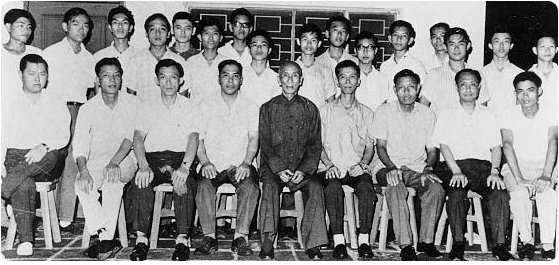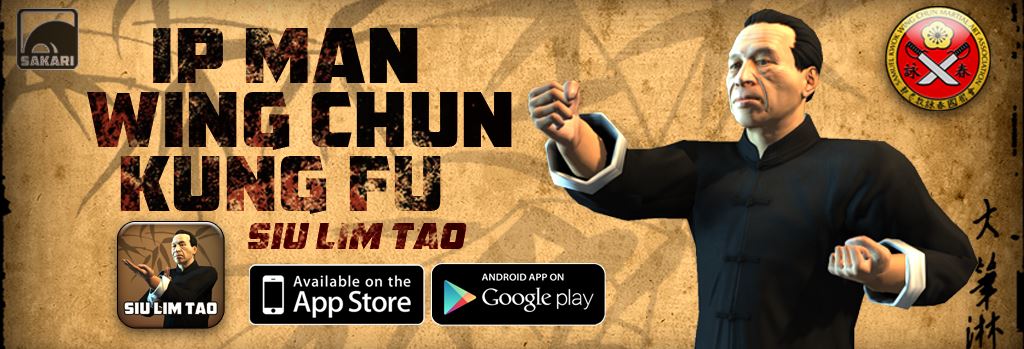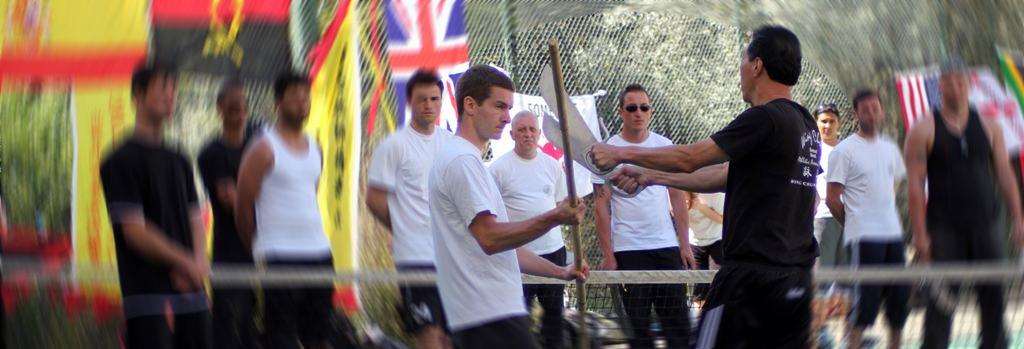Ip Man's Intelligence
Article by Samuel Kwok added on 20 Jul 2012. Last updated on 5 Jul 2013.
Ip Man's Intelligence from Straight Punch
An article by Master Sam kwok about Ip Man's intelligence as published in the straight punch section of masters mag.
Published in Masters Mag by Sam kwok
There is a saying in kung fu that "it is hard for a student to find a good sifu, but it is even more difficult for a sifu to find a good student" It is also said that there are systems of kung fu that have been lost over the passage of time because the masters could find no worthy student to whom to pass the traditions and heritage.
This could well have been the case for Wing Chun, had Leung Bik, son of the famous Wing Chun Master Leung Jan, not met Ip Man, his only student. Ip Man proved not only to be a great student, but a genius in fulfilling the responsibility of passing the art on to the future generations of masters.
It was due to Ip Man's innovations that Wing Chun was able to spread from a little city in Southern China to become one of the most popular and sought after systems of Martial Arts in the world.
 Ip Man was born in Foshan, China, at the end of the
Qing Dynasty. Foshan was situated in the most prosperous
region of the Zheyleng Delta of Guangdong province.
Wong Fai hung, Cheung Hung-shing, Leung Jan, Leung
Siu-ching, etc., came from Foshan. So Ip Man, grew up
hearing the stories of the exploits of these great kung fu
men. It's not surprising that he would develop into one of
the greats himself.
Ip Man was born in Foshan, China, at the end of the
Qing Dynasty. Foshan was situated in the most prosperous
region of the Zheyleng Delta of Guangdong province.
Wong Fai hung, Cheung Hung-shing, Leung Jan, Leung
Siu-ching, etc., came from Foshan. So Ip Man, grew up
hearing the stories of the exploits of these great kung fu
men. It's not surprising that he would develop into one of
the greats himself.
Ip Man's education in Wing Chun began as a youth when he became a student of Chan Wah Shun, who was a student of the famous Leung Jan. Chan Wah Shun accepted Ip Man as a student towards the end of his teaching career, when he was quite old. Master Chan was a big man by Chinese standards. So his Kung fu was powerful. Ip Man learned from Master Chan until the masters, death, and continued his training with one of his senior Kung Fu brothers (si-hing) until Ip Man left Foshan for Hong Kong.
Ip Man moved to Hong Kong to attend school. Here, he had a chance meeting with an old gentleman who was a martial artist. This old man crossed hands with Ip Man and beat him soundly. This disturbed Ip Man very much, as he had developed his kung fu to a high level and considered himself to be quite proficient. As it turned out, the old gentleman was Leung Bik, the son of Master Chan Wah Shun's teacher, the famous, Leung Jan.
Master Leung Bik's Wing Chun was much more refined than what Ip Man had leaned from Master Chan. While Chan Wah Shun had been a big man, Leung Bik was much smaller. There also was a pretty wide gap in the education level between the two masters. Chan Wah Shun was nor very well educated, while Leung Bik's father was a well-educated doctor of Chinese medicine. This education was passed to his son. Thus, Leung Bik was better able to understand the underlying principles of the Wing Chun system. This knowledge was passed to Ip Man.
Upon learning all that Leung Bik had to teach him, Ip Man went on to explore ways to simplify Wing Chun, making it easier to understand. In addition to his education in Wing Chun, Ip Man received an advanced formal education in his youth. He learnt the theories and principles of modem science and could therefore make use of modem technological knowledge, such as mechanical and mathematical theories, to expand the principles of Wing Chun. Ip Man even changed terminology, such as the Five Elements and Eight Diagrams (Ba Gua) that were commonly used in metaphysics. This helped to demystify Wing Chun, thus making it easier for the common student to understand and apply the system.
It is thanks to Master Ip Man that the modern Wing Chun system is so popular. Among the kung fu systems, Wing Chun is considered one of the simplest to learn and understand. The system is known to be direct, simple, economical in application, and highly effective in combat. Master Ip Man's contributions to the evolution of Wing Chun can be credited for building the systems reputation. These innovations demonstrated the intelligence of Ip Man.
For Spring 2007



